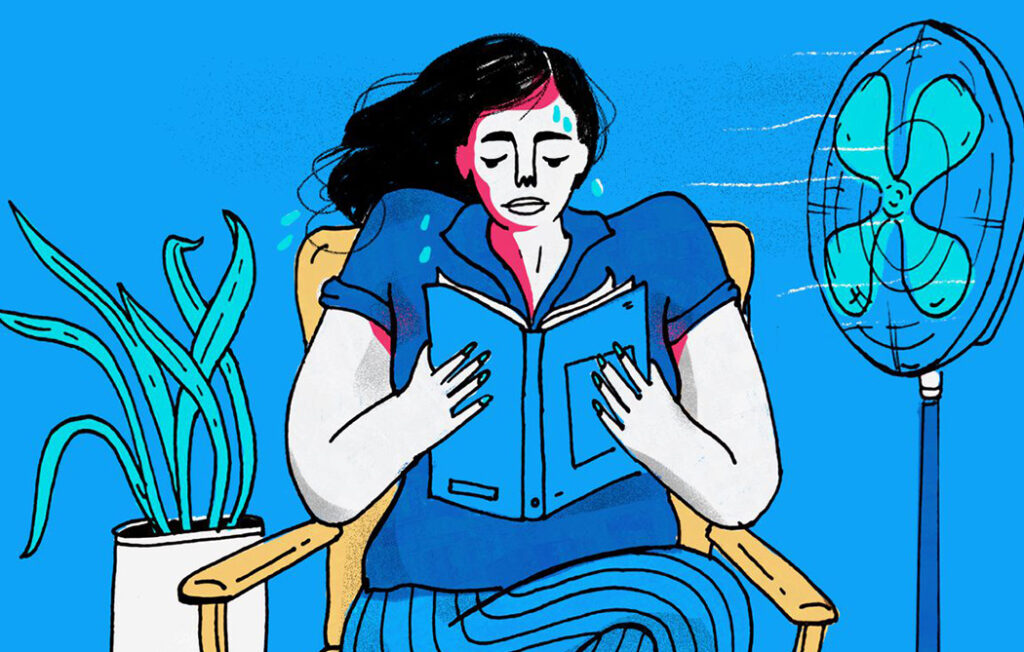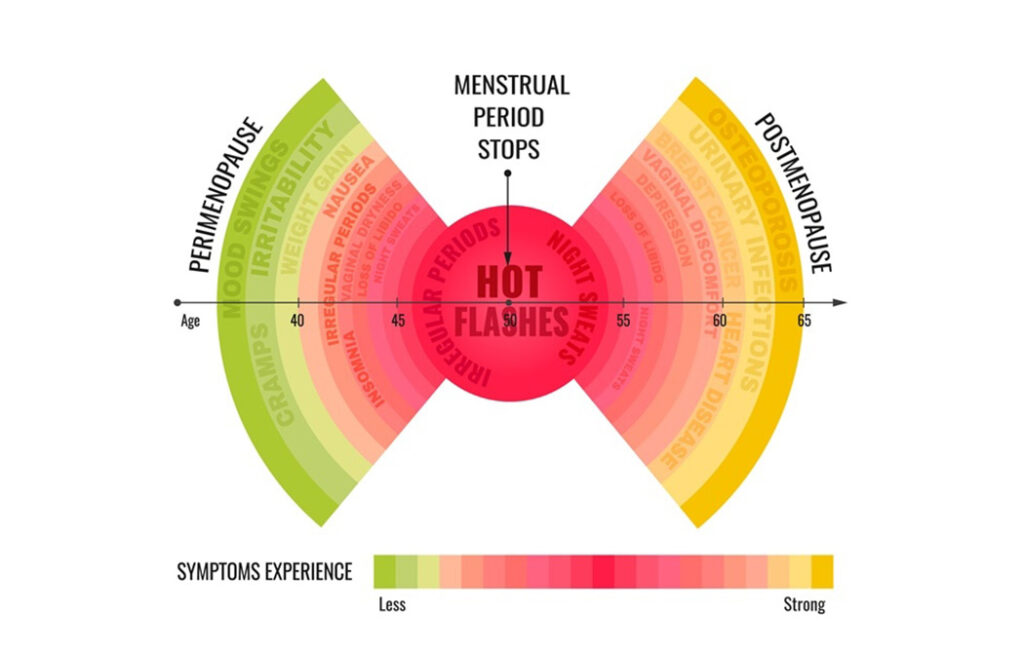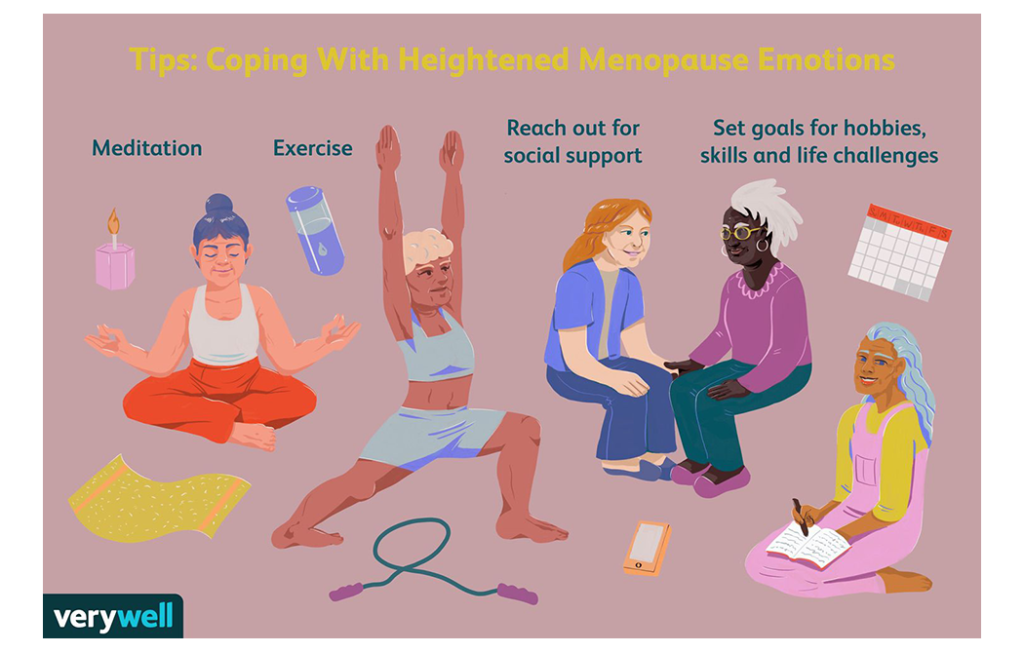
Menopause, when we think of the menopause most people think of middle-aged women with hot flushes.

There’s no shortage of menopause myths and misconceptions. You might have heard friends say things like I got 12 hot flashes a day and more or I wake up in the middle of the night and I’m like just in sweating buckets! But the thing is, menopause is different for everyone and many of the myths out there are flat-out wrong.
What is the menopause?
The menopause is when a woman stops having periods and is no longer able to get pregnant naturally. The menopause is a natural part of ageing that usually occurs between 45 and 55 years of age, as a woman’s oestrogen levels decline. In the UK, the average age for a woman to reach the menopause is 51.
What is the difference between premenopause, perimenopause, menopause, and postmenopause?

Premenopause
Premenopause is when you have no symptoms of perimenopause or menopause. You still have periods — whether they’re regular or irregular — and are considered to be in your reproductive years. Some hormonal changes may be occurring, but there are no noticeable changes in your body.
Perimenopause
Perimenopause, or menopause transition, begins several years before menopause. It’s the time when the ovaries gradually begin to make less estrogen. It usually starts in women’s 40s, but can start in their 30s or even earlier.
Perimenopause lasts up until menopause, the point when the ovaries stop releasing eggs. In the last 1 to 2 years of perimenopause, this drop in estrogen speeds up. At this stage, many women have menopause symptoms.
Postmenopause
This is the name given to the period of time after a woman has not bled for an entire year (the rest of your life after going through menopause). During this stage, menopausal symptoms, such as hot flashes, may ease for many women.
However, some women continue to experience menopausal symptoms for a decade or longer after the menopause transition. As a result of a lower level of estrogen, postmenopausal women are at increased risk for a number of health conditions, such as osteoporosis and heart disease. Medication, such as hormone therapy and/or healthy lifestyle changes, may reduce the risk of some of these conditions.
Early menopause
Early menopause happens when a woman’s periods stop before the age of 45 or under 20s-30s. It can happen naturally, or as a side effect of some treatments. This is sometimes called premature ovarian failure, or primary ovarian insufficiency.
What are the symptoms of menopause?
Every woman’s menopause experience is unique. Symptoms are usually more severe when menopause occurs suddenly or over a shorter period of time. Below common symptoms:
- hot flushes
- night sweats
- difficulty sleeping
- a reduced sex drive (libido)
- problems with memory and concentration
- vaginal dryness and pain, itching or discomfort during sex
- headaches
- mood changes
- palpitations
- joint stiffness, aches and pains
- reduced muscle mass
- recurrent urinary tract infections (UTIs)
- risk of developing weak bones (osteoporosis)
- increased cardiovascular disease (age)
How do I could do if I have menopause?
You may need treatment if your symptoms are severe or affecting your quality of life. There are several ways to reduce minor-to-moderate menopause symptoms naturally, using home remedies, lifestyle changes, and alternative treatments. You may benefit from treatment, such as hormone therapy, if your symptoms are severe or affect your quality of life. Generally, menopause symptoms can be managed or reduced using natural remedies and lifestyle adjustments.

